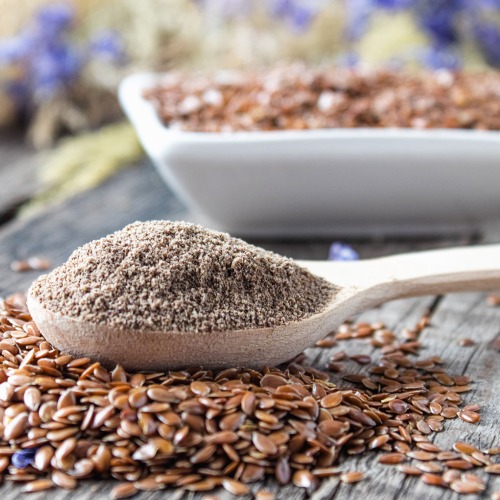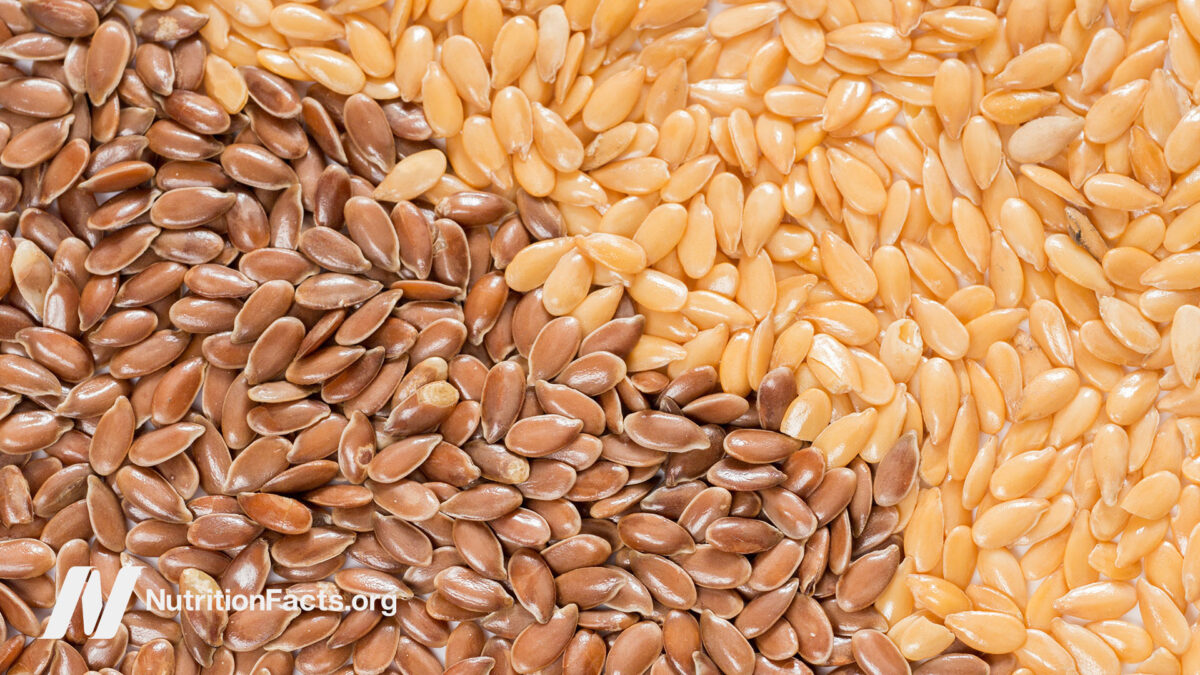
Flaxseeds
A review was published in a medical journal titled “Flaxseed: A Miraculous Defense Against Some Critical Maladies.” “Miraculous”? Really? Well, a remarkable intervention trial published in the journal Hypertension suggests that, in this case, the term “miraculous” may not be too far off.
Flaxseeds and Hypertension
Researchers designed a prospective, double-blind, placebo-controlled, randomized trial so they could randomize subjects into two groups and secretly introduce tablespoons of ground flaxseeds every day into the diets of half the participants to see if it made any difference. After six months, those who ate the placebo foods started out hypertensive and stayed hypertensive, despite the fact that many of them were on a variety of blood pressure pills. What about the hypertensives who were unknowingly eating flaxseeds every day? Their blood pressure dropped from 158/82 down to 143/75. A seven-point drop in diastolic blood pressure may not sound like a lot, but that would be expected to result in 46 percent fewer strokes and 29 percent less heart disease over time.
However, not all studies have shown significant blood pressure–lowering effects. There have been more than a dozen trials by now, involving more than a thousand subjects. And, yes: When you put them all together, overall, there were significant reductions in both systolic and diastolic blood pressures (the upper and lower numbers) following supplementation with various flaxseed products—but not as dramatic as that six-month trial. The longer trials tended to show better results, and some of the trials just used flaxseed oil or some kind of flaxseed extract. The thought is that the whole is greater than the sum of its parts, so the many components within flaxseed may all contribute towards blood pressure reduction.
Better Than Pills and Without Bad Side Effects?
In the six-month trial, the flaxseeds managed to drop subjects’ systolic and diastolic blood pressure by up to 15 and 7 points, respectively. Compare that result to the effect of powerful antihypertensive drugs, such as calcium-channel blockers (for example, Norvasc, Cardizem, Procardia), which have been found to reduce blood pressure by only eight and three points, respectively, or to ACE inhibitors (such as Vasotec, Lotensin, Zestril, Altace), which drop patients’ blood pressure by only five and two points, respectively. Ground flaxseeds may work two to three times better than these medicines, and they have only good side effects.
The Power of Flaxseeds
Flaxseeds, known as one of the richest sources of essential omega-3 fatty acids and having around a hundred times more cancer-fighting lignans than other foods, have also been demonstrated to prove helpful against breast and prostate cancers; controlling cholesterol, triglyceride, and blood sugar levels; reducing inflammation; and successfully treating constipation.
The Best Way to Eat Flaxseeds
It’s best to consume ground flaxseeds. They come in nature’s own finest packaging: a hard natural hull that keeps them fresh for up to a year in an airtight container. Unfortunately, nature’s packaging is a little too good. If we eat flaxseeds whole, they are likely to pass right through us, come out the other end, and not do us much good at all. So, if you don’t buy ground flax, be sure to chew them really well or grind them up in a coffee or spice grinder, a mini food processor, or a good blender. After they’re ground, you can store them in the refrigerator, and they’ll last a few months.
What About Flaxseed Oil?
Ground flaxseed is better than the flaxseed oil. The seeds are little nutrition powerhouses, and we lose much of that nutrition when we just press out the oil. Not only are flaxseeds the richest source of lignans, but they are also a great source of iron, zinc, copper, calcium, protein, potassium, magnesium, folate, and soluble fiber—which can lower our cholesterol and triglycerides—and even contain boron, a trace mineral important for optimum bone health. We don’t get any of those, though, with just flaxseed oil.
Cyanide in Flaxseeds?
Flaxseeds have such fantastic benefits that I recommend a minimum of one tablespoon of ground flaxseeds a day in my Daily Dozen, but concerns about the naturally occurring cyanide content have recently surfaced, which is why I only recommend a tablespoon of raw flax a day.
Cooking Flaxseeds
Cooking ground flax in baked goods appears to destroy the cyanide-forming compounds, but it doesn’t destroy their healthful nutrients. Ground flaxseed added to baked goods, for example, has been shown to keep lignan stability up to 350°F (177°C).
For substantiation of any statements of fact from the peer-reviewed medical literature, please see the associated videos below.
Popular Videos for Flaxseeds

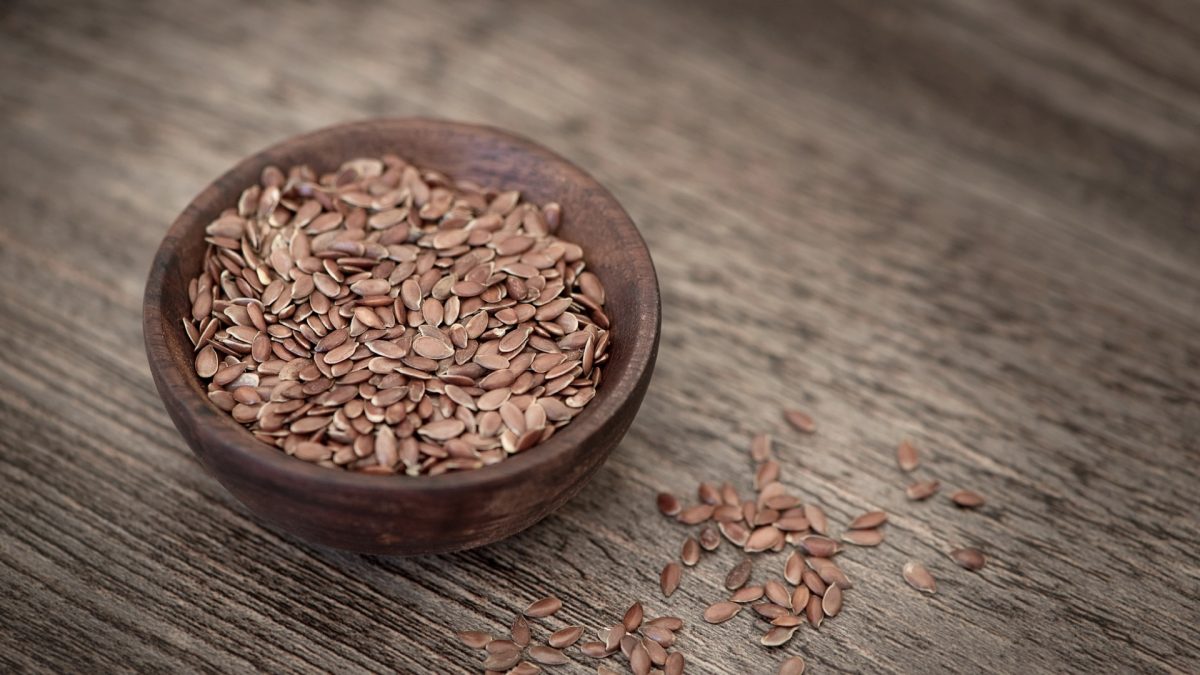
Benefits of Flaxseeds for Inflammation
Elevated levels of pro-inflammatory, aging-associated oxylipins can be normalized by eating ground flaxseed.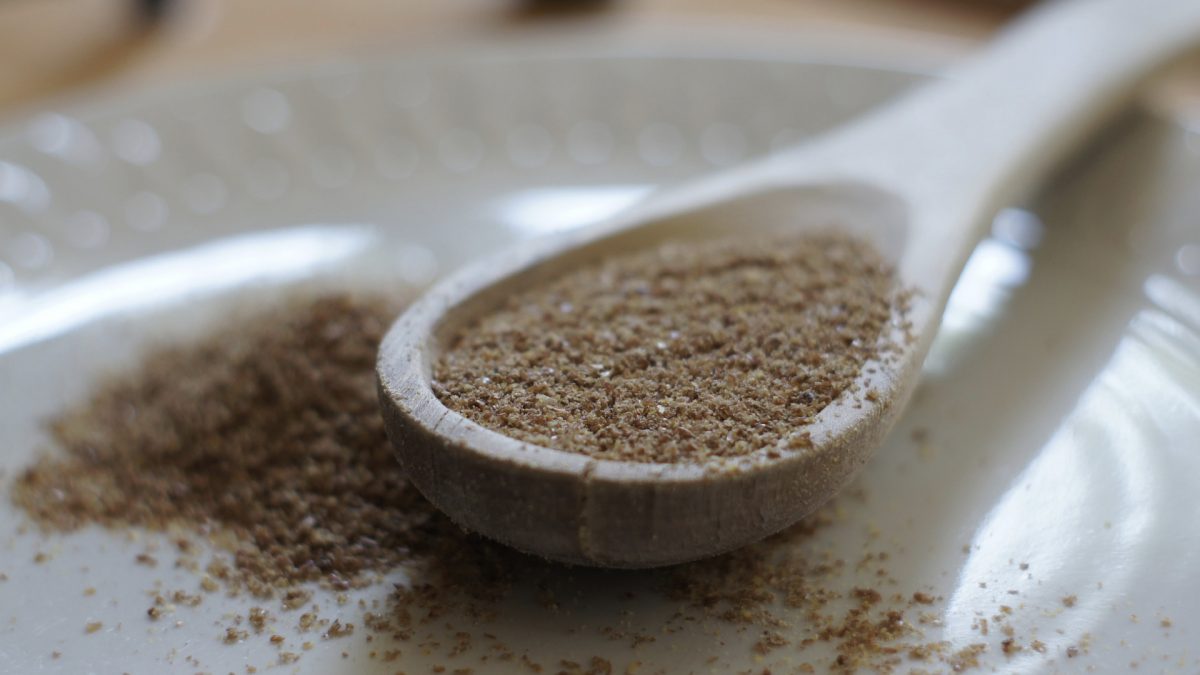
Benefits of Flaxseed Meal for Weight Loss
Were the flax seed studies showing 20 pounds of weight loss just flukes?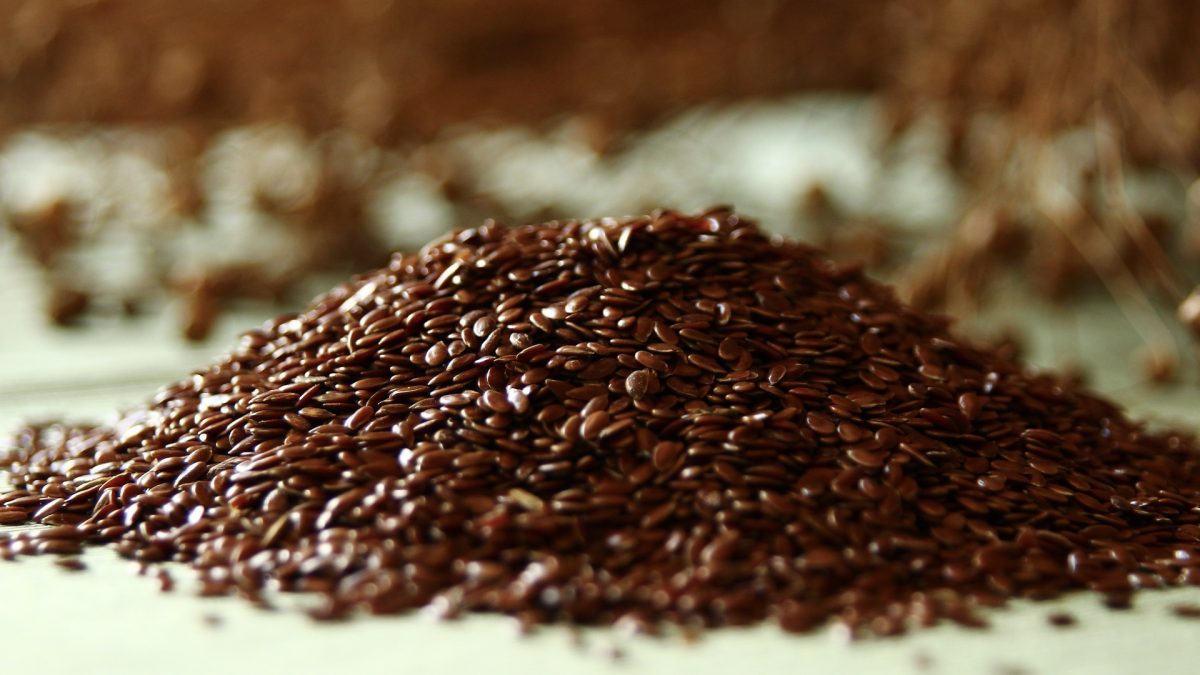
How Well Does Cooking Destroy the Cyanide in Flaxseeds?
Are flax seeds like bitter almonds, where just a few ounces could kill you, or...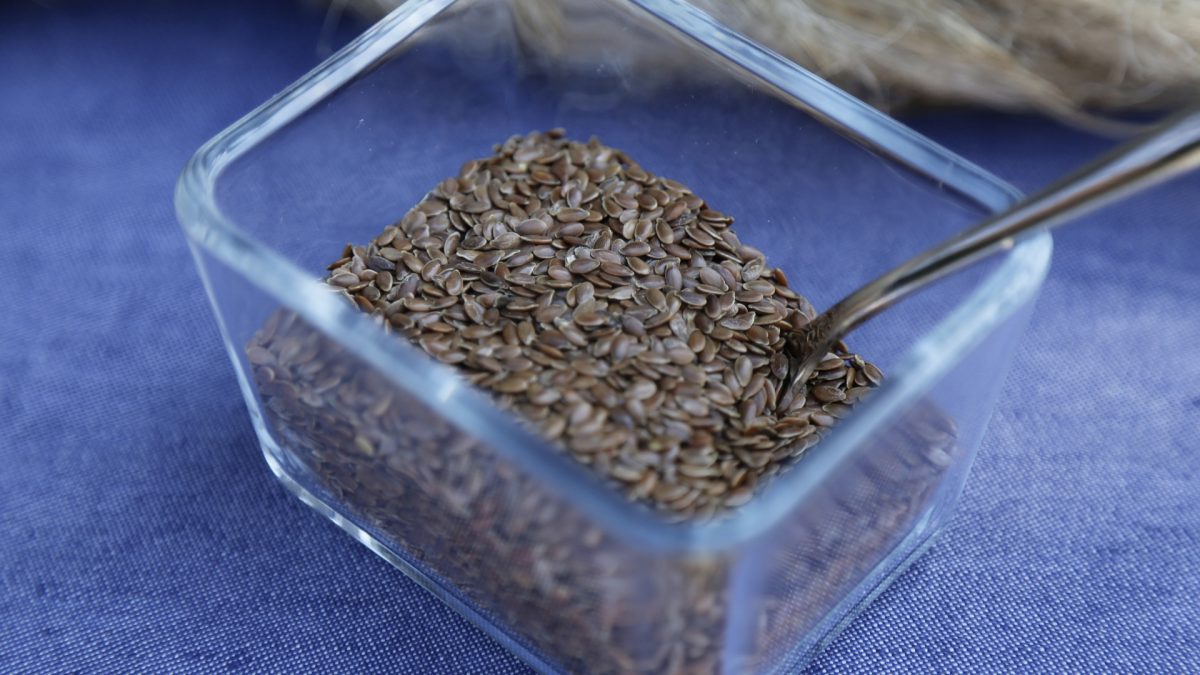
Should We Be Concerned About the Cyanide from Flax Seed?
In a worst-case scenario, how much flax seed is too much?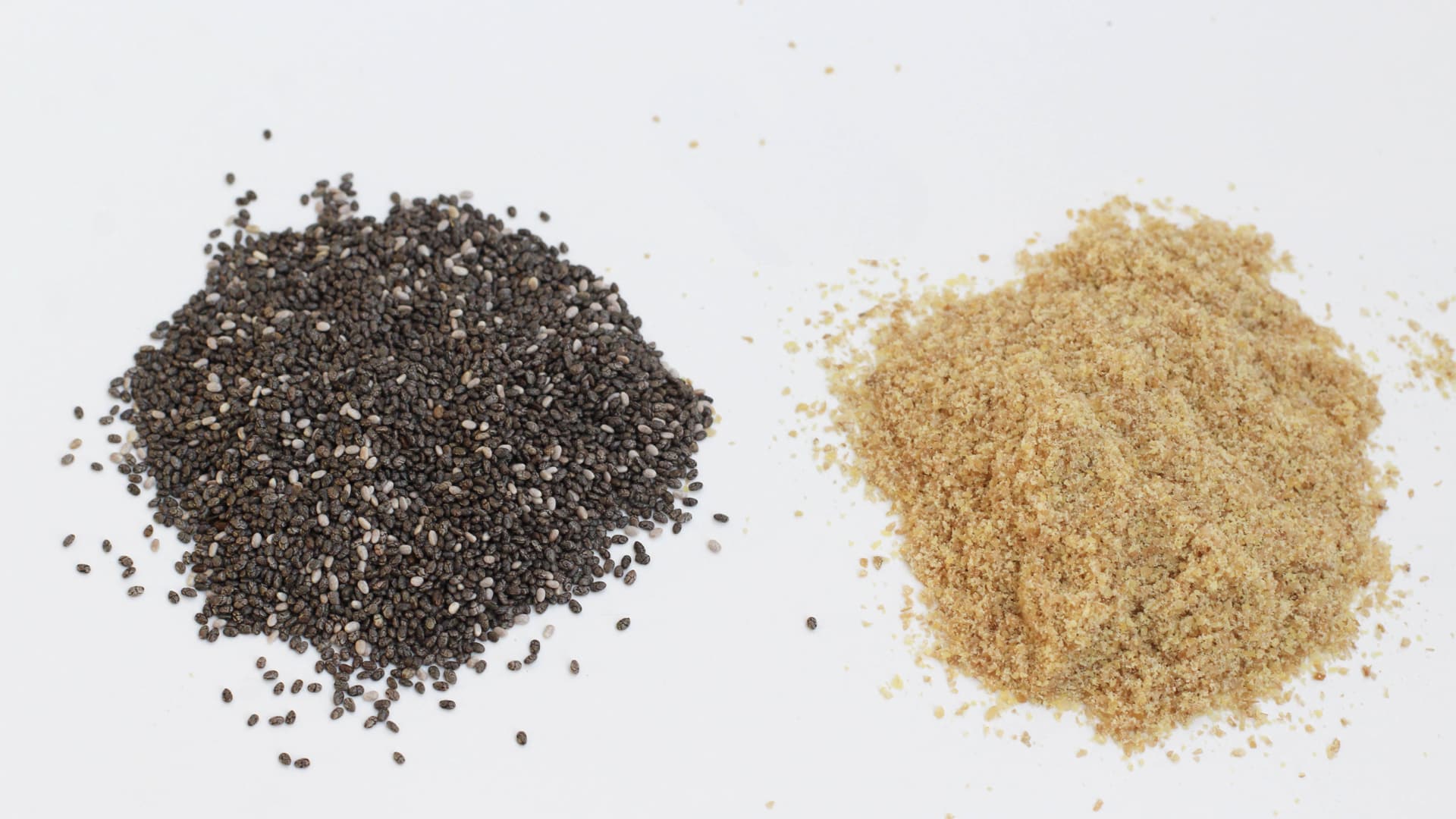
Which Are Better: Chia Seeds or Flaxseeds?
What effect do chia seeds have on weight loss, blood sugar, cholesterol, blood pressure, and...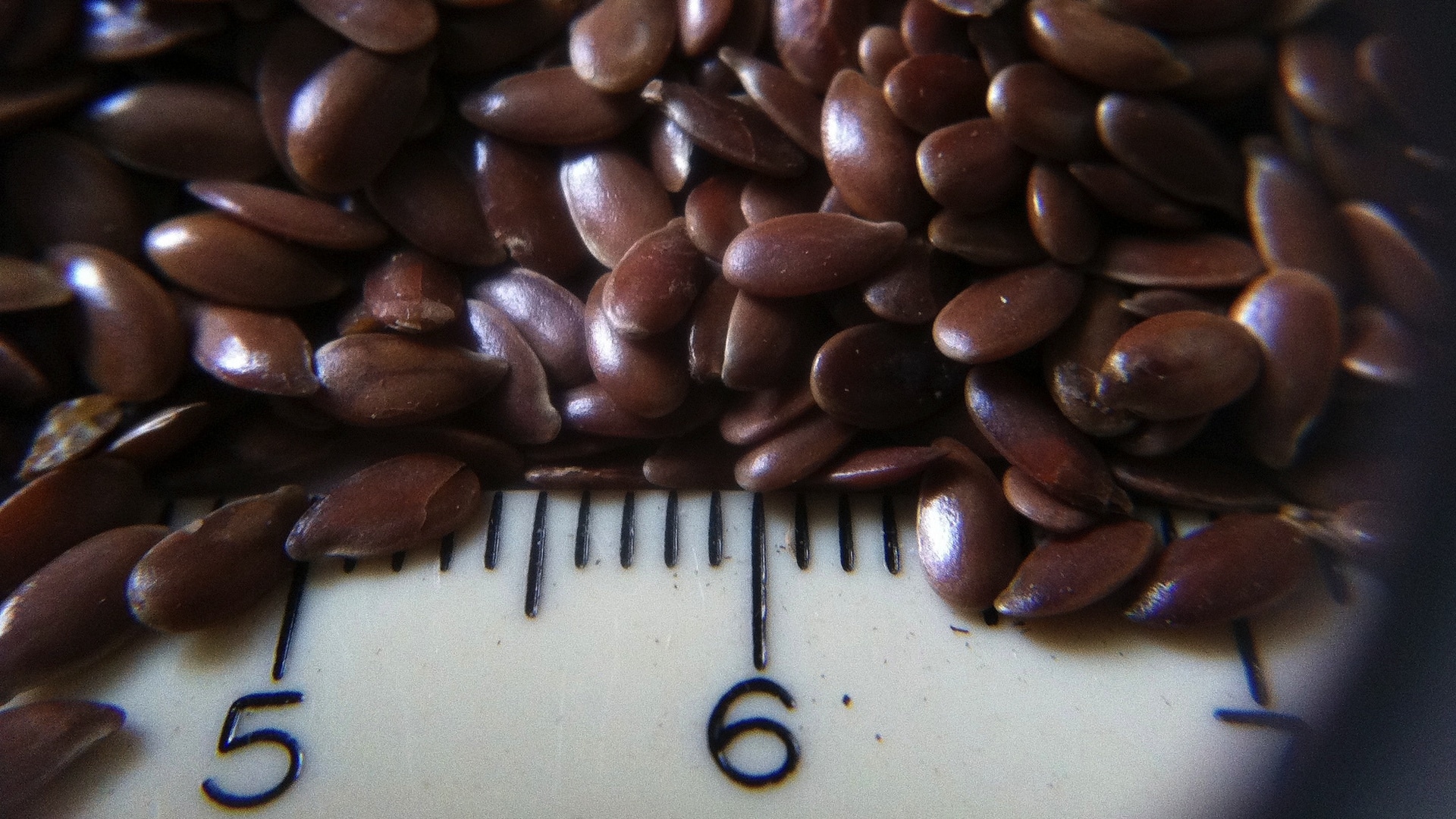
Flaxseeds for Hypertension
Extraordinary results reported in a rare example of a double-blinded, placebo-controlled, randomized trial of a...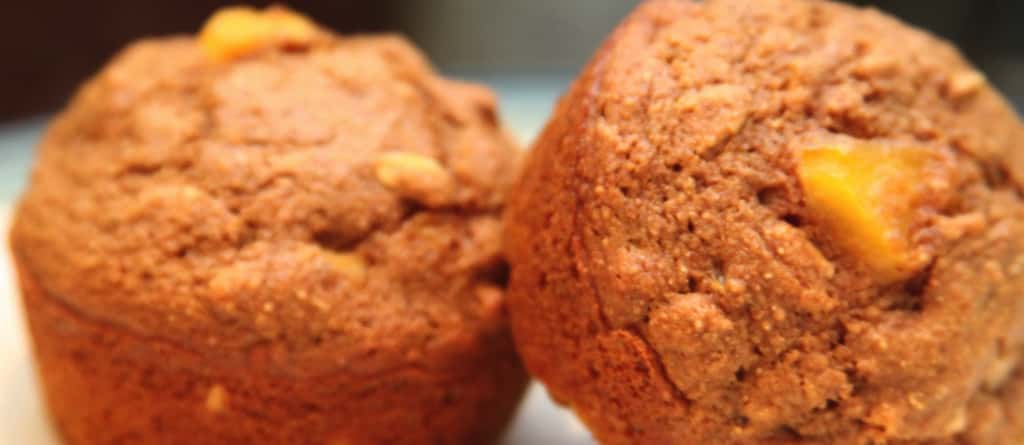
Flaxseeds & Breast Cancer Survival: Clinical Evidence
A randomized, double-blind, placebo-controlled, clinical trial of flax seeds in breast cancer patients finds flax...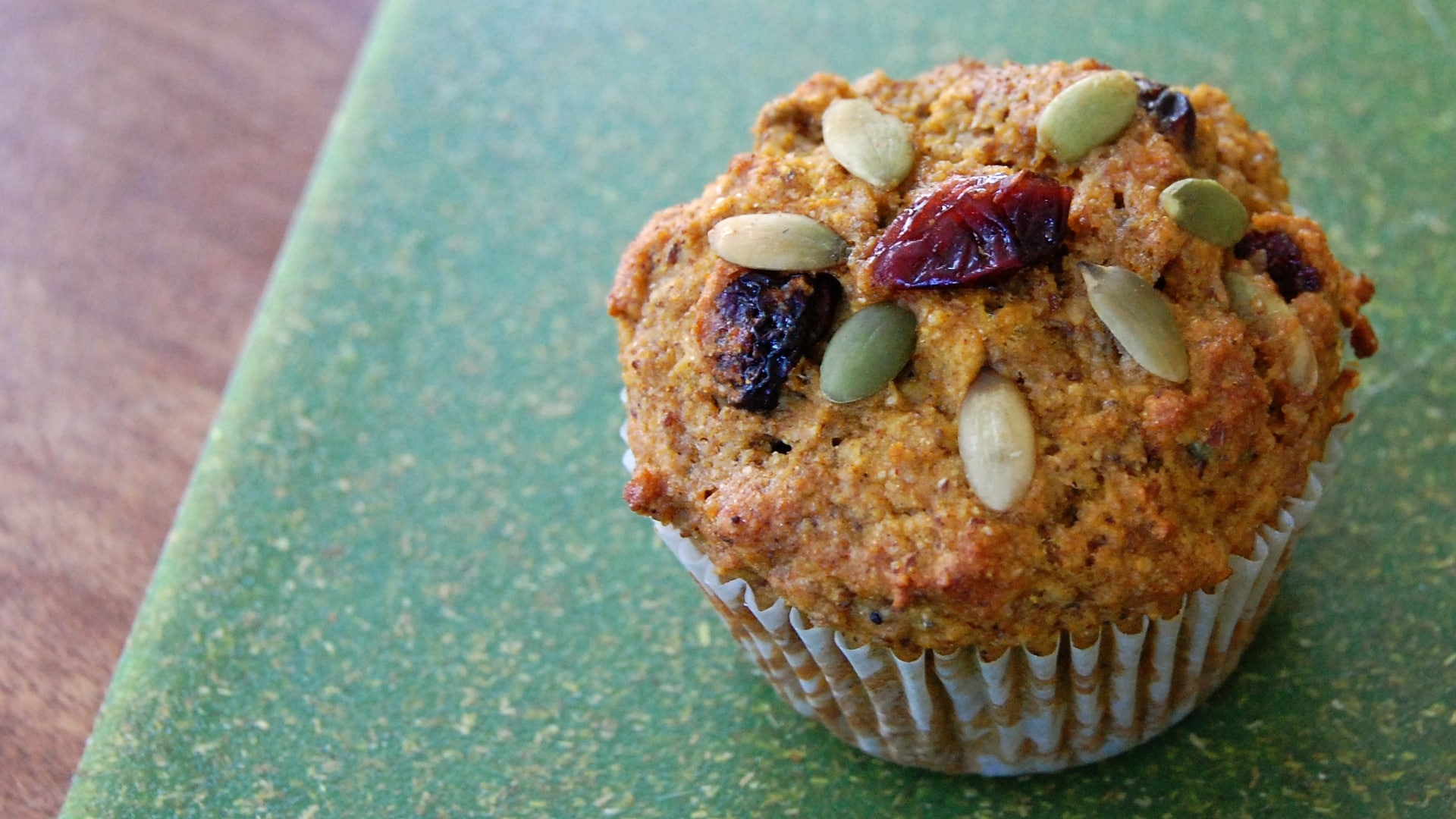
Can Flaxseeds Help Prevent Breast Cancer?
Flax seed consumption may play a role in preventing and treating breast cancer by blocking...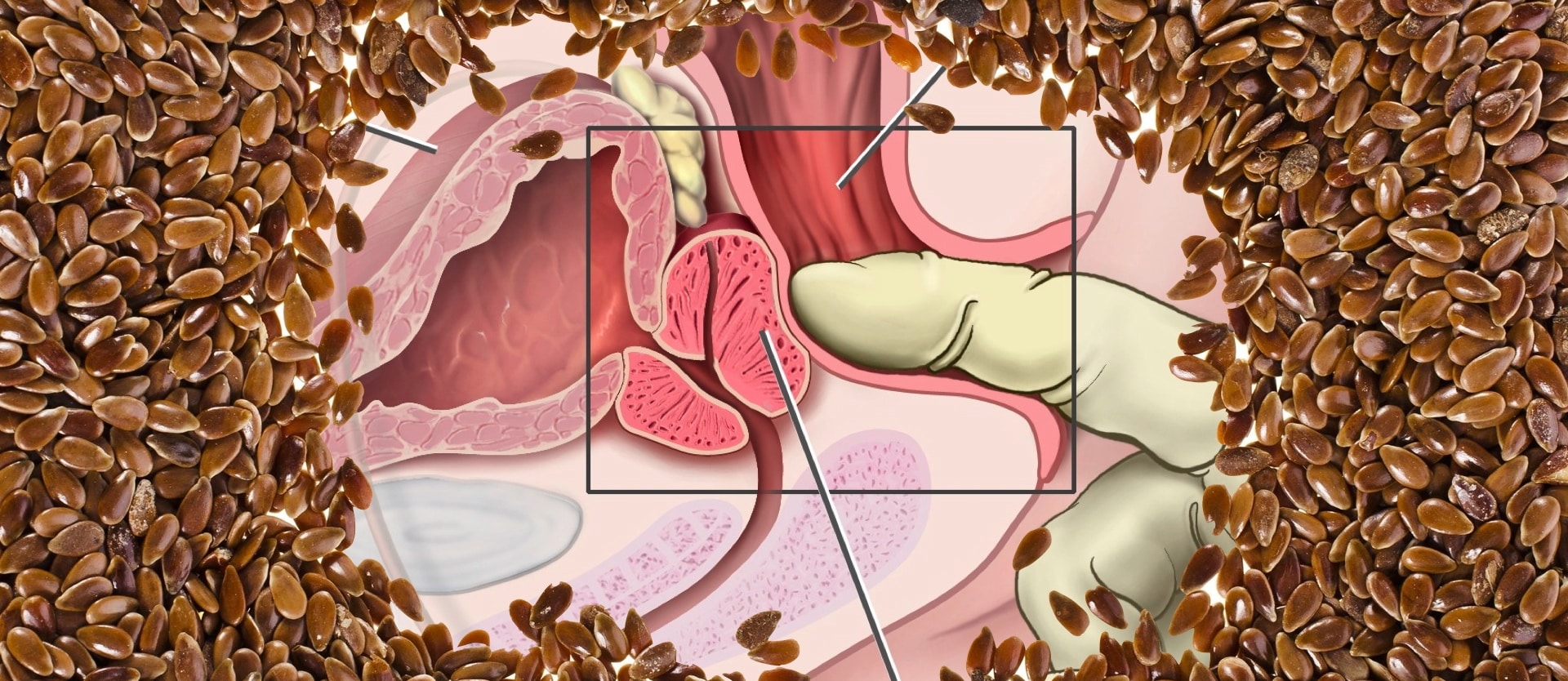
Flaxseeds vs. Prostate Cancer
What happens when men with prostate cancer and prostatic intraepithelial neoplasia (PIN) are placed on...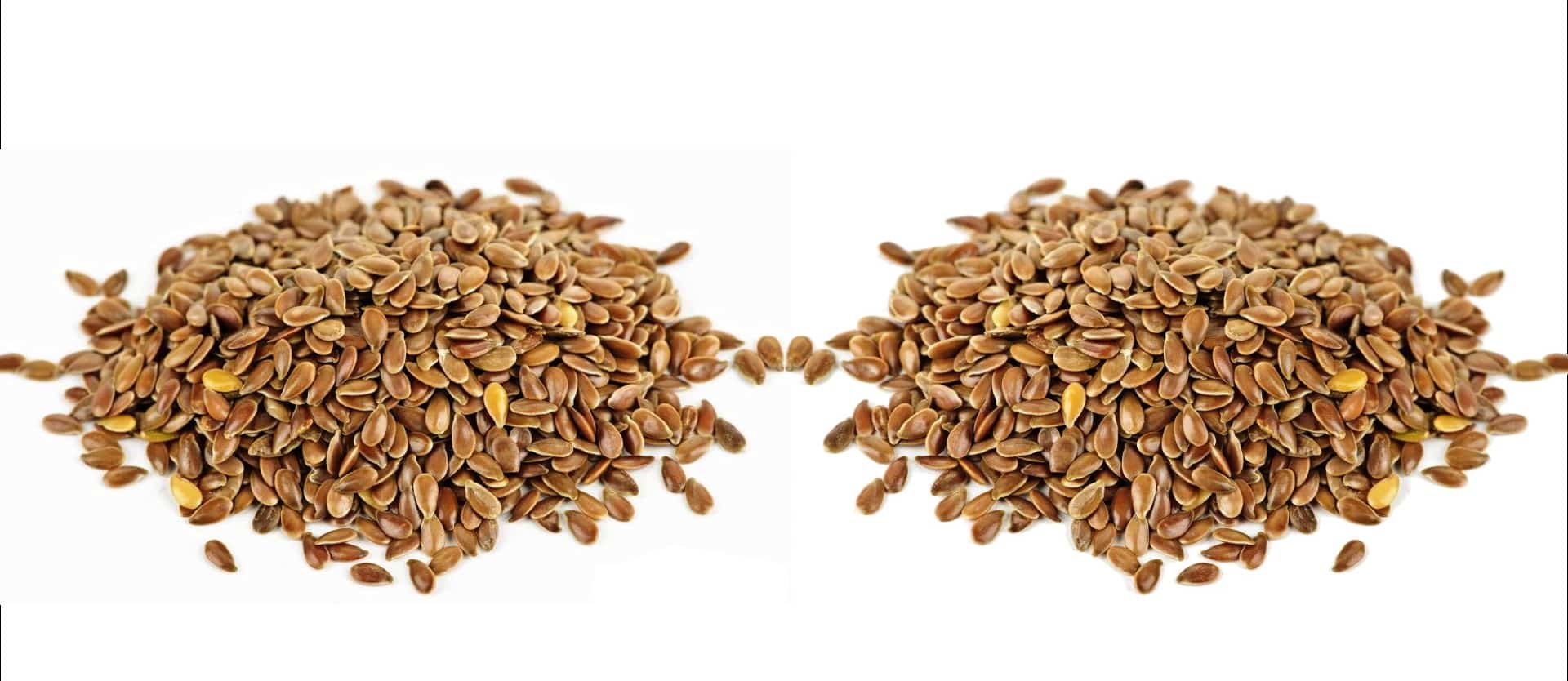
Flaxseeds for Breast Pain
A tablespoon a day of ground flax seeds appears to improve ovarian function, and is...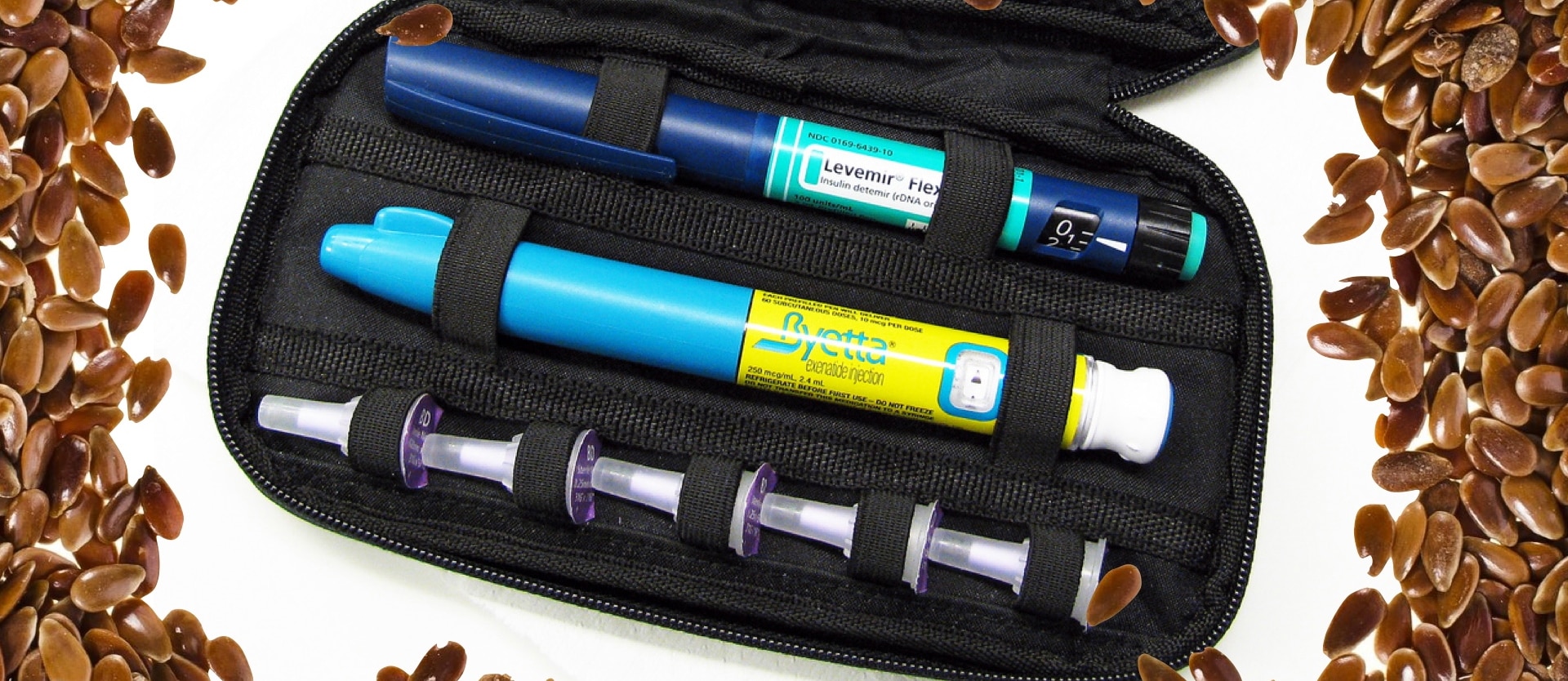
Flaxseeds vs. Diabetes
A daily tablespoon of ground flax seeds for a month appears to improve fasting blood...
Flaxseeds & Breast Cancer Prevention
Young women at high risk for breast cancer given just a teaspoon of ground flax...All Videos for Flaxseeds
-

The Side Effects of Statins: Are They Worth It?
When statin-“intolerant” patients are challenged blindly, how many are really suffering muscle side effects?
-

Are the Pollutant Levels in Fish High Enough to Be Harmful?
The tolerable daily toxin safety limits are based on single chemicals. What if “safe” levels of chemicals in seafood are combined and tested together?
-

Golden vs Brown Flaxseed: Which Has More Benefits?
Which kind of flaxseed has more cancer-fighting lignans?
-

How to Get Enough Polyphenols for Life Extension
Is the link between flavonoid consumption and longevity cause-and-effect, and are all sources of flavonoids equally healthy?
-

How to Prevent Wrinkles with Diet
The evidence supports the recommendation to follow a whole food, plant-based diet for healthier looking skin.
-

How Not To Age – Live Presentation
In this live lecture, Dr. Greger offers a sneak peek into his latest book, How Not to Age, a New York Times Best Seller.
-

Which Foods Are the Most Anti-Angiogenic?
For cancer prevention, researchers suggest “constant consumption” of anti-angiogenic foods.
-

Plant-Based Diet for Treating and Reversing Stage 3 Kidney Disease
I share a touching story of the power of plant-based eating for chronic kidney failure.
-

The Best Diet for Cancer Patients
What diet should oncologists recommend?
-

Answering Your Questions About Cholesterol and Diabetes
I answer some common questions I’ve been asked about cholesterol and diabetes, such as “What is the ideal LDL?” “What’s going on when someone eats healthfully but their glucose is still out of control?”
-

Dietary Approach to Naturally Treating Menopause Symptoms
Specific foods have been shown in randomized controlled trials to improve symptoms like hot flashes.
-

Natural Dietary Treatments for Enlarged Prostate BPH
Cranberries and pumpkin seeds are put to the test for benign prostatic hypertrophy.
-

Blocking the Cancer Metastasis Enzyme MMP-9 with Beans and Chickpeas
Which legumes are best at inhibiting the matrix metalloproteinase enzymes that allow cancer to become invasive?
-

What Are the Best Foods?
A review of reviews on the health effects of animal foods versus plant foods.
-

Benefits of Flaxseeds for Inflammation
Elevated levels of pro-inflammatory, aging-associated oxylipins can be normalized by eating ground flaxseed.
-

Benefits of Flaxseed Meal for Weight Loss
Were the flax seed studies showing 20 pounds of weight loss just flukes?
-

Should We Be Concerned About the Cyanide from Flax Seed?
In a worst-case scenario, how much flax seed is too much?
-

How Well Does Cooking Destroy the Cyanide in Flaxseeds?
Are flax seeds like bitter almonds, where just a few ounces could kill you, or more like regular almonds, where regular dietary intake wouldn’t even come close?
-

Dr. Greger on Live with Kelly and Ryan
Watch my JanYOUary 2018 segment on Live with Kelly and Ryan.
-

Dietary Supplements for Autism
Vitamin C, vitamin D, and omega-3 fish oil supplements put to the test to improve the core symptoms of autism spectrum disorder.
-

Should Women with Fibroids Avoid Soy?
When it comes to uterine fibroids, is soy harmful, harmless, or helpful?
-

Shark Cartilage Supplements Put to the Test to Cure Cancer
Shark cartilage supplements carry risks, but so do many cancer treatments. The question is, do they work?
-

Dr. Greger’s Daily Dozen Checklist
In my book How Not to Die, I center my recommendations around a Daily Dozen checklist of everything I try to fit into my daily routine.
-

Are Avocados Good for Your Cholesterol?
Can guacamole lower your cholesterol as well as other whole-food fat sources like nuts, or is that just spin by the avocado industry?
-

Dr. Greger’s Daily Dozen Checklist
In my book How Not to Die, I center my recommendations around a Daily Dozen checklist of all the things I try to fit into my daily routine.
-

The Benefits of Açai vs. Blueberries for Artery Function
What are the effects of açai berries, cooked and raw blueberries, grapes, cocoa, green tea, and freshly squeezed orange juice on artery function?
-

Which Are Better: Chia Seeds or Flaxseeds?
What effect do chia seeds have on weight loss, blood sugar, cholesterol, blood pressure, and inflammation?
-

How to Treat Endometriosis with Seaweed
Five cents’ worth of seaweed a day may dramatically improve a major cause of disability and compromised quality of life among women.
-

Wakame Seaweed Salad May Lower Blood Pressure
Seaweed salad is put to the test for hypertension.
-

Should We Take EPA and DHA Omega-3 for Our Heart?
What’s the best way to fulfill the omega-3 essential fat requirements?
-

The Downside of Green Smoothies
Concerns about smoothies and oxalic acid, nitrate availability, dental erosion, and weight gain are addressed.
-

Does Rye Bread Protect Against Cancer?
The lignans in rye could explain why rye intake is associated with lower breast and prostate cancer risk.
-

How to Treat High Blood Pressure with Diet
The first-line treatment for hypertension is lifestyle modification, which often includes the DASH diet. What is it and how can it be improved?
-

Flaxseeds for Hypertension
Extraordinary results reported in a rare example of a double-blinded, placebo-controlled, randomized trial of a dietary intervention (flaxseeds) to combat one of our leading killers, high blood pressure.
-

Can Flaxseeds Help Prevent Breast Cancer?
Flax seed consumption may play a role in preventing and treating breast cancer by blocking the inflammatory effects of interleukin-1.
-

Lifestyle Medicine Is the Standard of Care for Prediabetes
Lifestyle modification is considered the foundation of diabetes prevention. What dietary strategies should be employed, and why don’t more doctors use them?
-

Cholesterol Feeds Breast Cancer Cells
Cholesterol appears to stimulate the growth of human breast cancer cells—which may explain why phytosterol-rich foods, such as pumpkin seeds, are associated with reduced breast cancer risk.
-

Treating Asthma with Plants vs. Supplements?
Whole fruits and vegetables were compared to both antioxidant pills, as well as supplements containing fruits and vegetable extracts, for their ability to treat seasonal allergies, improve lung function, and control asthma.
-

Who Shouldn’t Consume Curcumin or Turmeric?
Just because something is natural and plant-based doesn’t mean it’s necessarily safe. Those who are pregnant, have gallstones, or are susceptible to kidney stones may want to moderate their turmeric consumption.
-

Tart Cherries for Insomnia
The melatonin content in certain plant foods such as almonds, raspberries, and goji berries may explain the improvement in sleep quality associated with tart cherry consumption.
